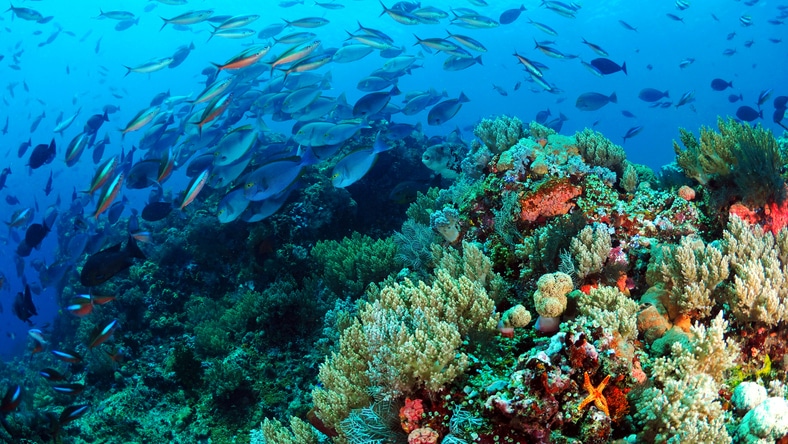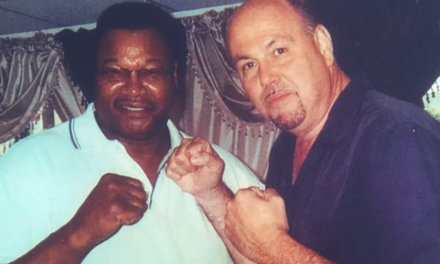Mark Andrew Kozlowski is a marine technology entrepreneur and ocean conservation advocate based in Nova Scotia, Canada. Growing up on the Atlantic coast, Mark developed a deep respect for the sea’s power, complexity, and importance. He studied offshore engineering and environmental science, eventually founding Blue Horizon Technologies—a company focused on building sustainable solutions for ocean-based industries. Through his work in AI-powered marine data, offshore renewable energy, and sustainable fishing innovation, Mark aims to bridge the gap between profit-driven industries and environmental responsibility. He is also active in youth education and policy advocacy, believing that meaningful change happens when science, business, and community work together.
What inspired you to focus your career on ocean-based technology and sustainability?
I’ve always had a close relationship with the ocean. Growing up in Nova Scotia, you don’t just visit the ocean—it becomes part of your life. The smell of salt air, the rhythm of the tides, the communities that depend on the sea—they shape you. I studied offshore engineering because I was fascinated by how we could work with the ocean, not against it. But the deeper I got into the industry, the more I saw the consequences of our actions—overfishing, pollution, destruction of habitats.
What inspired me was that tension. On one side, the ocean is vital to our economies and way of life. On the other, we’re depleting it at an alarming rate. I couldn’t accept that we had to choose between economic growth and environmental stewardship. That’s what led me to create Blue Horizon Technologies—to prove that we can do both, and in fact, must do both if we’re going to have a future worth fighting for.
How did you get your first idea for a business, and what was the journey like turning it into something real?
The first spark came while I was working as an offshore engineer on a project that was supposed to be eco-conscious. We had all the right branding, the buzzwords, the checklists. But when I looked around, I realized we weren’t really doing anything differently. It felt performative. That disconnect bothered me.
I started sketching out ideas for how we could monitor ocean activity more accurately, using smart tech and AI. What if we could use real-time data to make better decisions? What if fishing boats knew exactly where and when to fish to reduce bycatch and avoid overfishing? What if wind farms could operate efficiently without disrupting marine life?
Turning it into a real company was slow. I bootstrapped it, reached out to like-minded engineers and biologists, and slowly built a team. We had early failures. Some prototypes didn’t work. Funding was hard. But we kept refining the tech and showing people that conservation and performance weren’t enemies. Eventually, we gained traction because we didn’t just talk sustainability—we built tools that made it work in the field.
What’s a major challenge you’ve faced as a founder working at the intersection of business and environmentalism?
The biggest challenge is changing mindsets—on both sides. In traditional industry, sustainability is often seen as a cost center. Something you do because you have to, not because it benefits you. On the flip side, some environmental circles are skeptical of any for-profit company trying to do good.
Being in the middle of that has meant explaining, educating, and often just listening. We had to show industry leaders that sustainability leads to long-term profit. Healthier ecosystems mean more stable yields, fewer lawsuits, better public perception, and more loyal customers. For environmentalists, we had to prove we weren’t just greenwashing. That our mission was rooted in real, measurable impact.
It’s still a balancing act. But I’ve found that data helps. When you can show how reducing fuel usage saves millions or how protecting a fish species helps stabilize an entire supply chain, people start listening.
What drives your personal philosophy as a leader?
Clarity, purpose, and patience.
As a leader, I believe your job is to make sure the team knows why they’re doing what they’re doing. It’s not enough to assign tasks. People need to connect to a larger mission. In our case, that mission is building a better relationship between humans and the ocean.
I also value patience, which I think is underrated in today’s business culture. The ocean teaches you that. Tides take time. Storms pass. Currents shift slowly but powerfully. When you’re building something that aims to make real change—especially in an industry as complex as marine conservation—you can’t expect overnight results. You need to stay consistent, focused, and humble.
How do you stay motivated when progress feels slow or obstacles feel overwhelming?
I always go back to the ocean. There’s something grounding about it. If I’m stuck or burnt out, I take time to walk along the shoreline or even swim in the cold Atlantic. It brings everything back into perspective.
I also remind myself that progress isn’t always visible right away. Sometimes you plant seeds and don’t see the growth until months or years later. That’s especially true in conservation and tech. I’ve learned to celebrate small wins—a prototype that works, a partnership that forms, a student who emails saying they were inspired by one of our talks.
And honestly, the state of the planet is motivation enough. We don’t have time to wait for the perfect conditions. The work has to happen now.
What’s one lesson you wish more entrepreneurs understood about environmental responsibility?
That it’s not a trade-off—it’s a multiplier. When you build sustainability into your business from day one, it opens up new opportunities, builds stronger loyalty, and often leads to smarter systems.
I’ve seen companies resist change because they think it’s expensive or complicated. But ignoring environmental responsibility is what’s expensive. Rising fuel costs, regulatory fines, supply chain disruptions—these are all risks tied to environmental damage.
Sustainability forces you to think long-term, be resource-efficient, and adapt. And those are the same traits that define great businesses.
How do you measure success at Blue Horizon Technologies?
We measure success in two ways: impact and scalability.
Impact means our work actually benefits marine ecosystems. If we reduce bycatch, increase ocean biodiversity, or help companies cut emissions, that’s success. But it doesn’t stop there. It needs to be scalable. If a solution only works in one bay, it’s not enough. We design tools and systems that can adapt to different regions, industries, and conditions.
We also track how much behavior changes in the organizations we work with. Are they using our data to improve practices? Are they investing more in sustainability year after year? Those signs show us that what we’re building is influencing the system.
What’s next for your work in ocean sustainability?
We’re expanding our AI systems to integrate with global data sources—satellites, marine drones, weather stations—to create smarter, more responsive decision-making tools for governments and industries.
We’re also working on building low-impact infrastructure for tidal power and partnering with researchers to better understand how offshore renewable energy can coexist with marine wildlife.
Personally, I want to continue focusing on education. I think it’s time we made ocean literacy a bigger part of school curriculums. The next generation needs to understand the ocean as more than just a distant resource. It’s our life support system.
What advice would you give to someone who wants to pursue a mission-driven career like yours?
Don’t wait for perfect conditions. Start now, even if it’s messy. Get involved in projects. Talk to people doing the work. Learn how systems really operate.
And don’t be afraid to combine skills. People often think they have to choose between science and business or tech and ethics. You don’t. The world needs more people who understand both sides and can build bridges.
Be curious, stay humble, and remember that doing the right thing and building a successful career aren’t opposites. They’re connected—especially when the future of the planet is on the line.
What’s the legacy you hope to leave behind?
I hope people say that I helped change how we think about the ocean. That I showed we can be stewards and innovators at the same time.
If our work helped create smarter systems, inspired future leaders, and left marine ecosystems healthier than we found them, that would be enough for me.
The ocean has given us so much. My goal is to give something meaningful back.
Final Thoughts
Ocean conservation is no longer just a niche cause—it’s a business imperative, a scientific frontier, and a moral responsibility. Through a blend of technology, purpose, and persistence, Mark Andrew Kozlowski is helping lead the way toward a more balanced and sustainable relationship with our seas. As the tide of innovation rises, so too does the hope that industries across the globe will choose to ride the wave of progress—not at the ocean’s expense, but in harmony with it.




